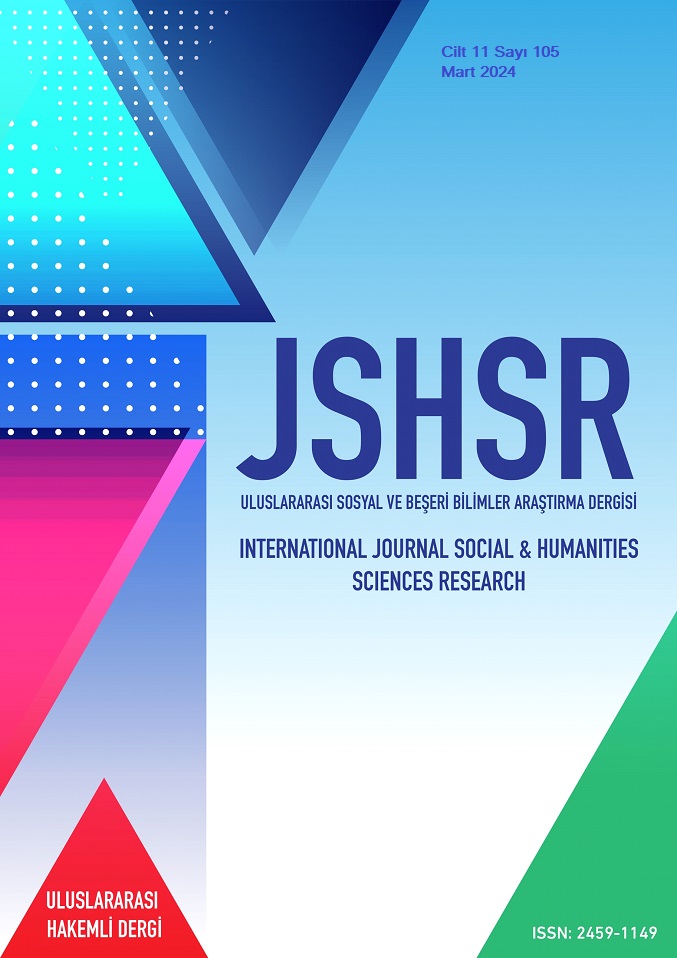Teacher Opinions on the Effects of Technology on Education
DOI:
https://doi.org/10.5281/zenodo.10926957Keywords:
Technology, education, teacherAbstract
The effects of technology on education radically change modern education systems, transform learning environments and offer unique opportunities to students. These changes shape fundamental elements in education such as access, customized learning, interaction and collaboration. First of all, one of the most important contributions of technology to education is the easy and unlimited access to information. Online resources provide students with access to information from around the world across geographic boundaries, thus increasing educational inclusivity. The effects of technology on education have a significant impact on teachers as well as students. It is important for teachers to evaluate the opportunities and challenges that technology offers in the field of education. One of the effects of technology on education is that it enriches students' learning experiences. Digital tools and online resources diversify course materials and provide students with interactive learning opportunities. This allows teachers to make lessons more interesting and increase student engagement. In the study, the qualitative research method was used to examine teachers' opinions about the effects of technology on education. By taking teachers' opinions about the effects of technology on education, we focused on understanding their perceptions and experiences more deeply. The study was conducted with twenty-five teachers working at different levels and in different branches, and it was aimed to determine the opinions of teachers about the effects of technology on education. Face-to-face interviews were conducted using a specially created interview form for this purpose. The opinions of teachers, students, education experts and other stakeholders on this issue are quite diverse and often interact. In the opinions given, the contributions of technology to education and the challenges it brings are discussed in detail. First of all, the positive effects of technology on education are stated. Many teachers emphasized that digital tools and online platforms make lessons more interesting and enable students to participate more actively.
References
Bates, A. W. (2015). Teaching in a digital age: Guidelines for designing teaching and learning. BCcampus.
Creswell, J. W. (2009). Research designs. Qualitative, quantitative, and mixed methods approaches (3rd ed.). Sage Publications, Inc.
Garrison, D. R., Anderson, T., & Archer, W. (1999). Critical inquiry in a text-based environment: Computer conferencing in higher education. The internet and higher education, 2(2-3), 87-105.
Greenhow, C., & Robelia, B. (2009). Informal learning and identity formation in online social networks. Learning, media and technology, 34(2), 119-140.
Hwang, G. J., & Chang, H. F. (2011). A formative assessment-based mobile learning approach to improving the learning attitudes and achievements of students. Computers & Education, 56(4), 1023-1031.
Johnson, L., Becker, S. A., Cummins, M., Estrada, V., Freeman, A., & Hall, C. (2016). NMC horizon report: 2016 higher education edition (pp. 1-50). The New Media Consortium.
Mayer, R. E. (2009). Multimedia learning principles and applications. Yogyakarta: Student Library.
Means, B., Toyama, Y., Murphy, R., Bakia, M., & Jones, K. (2009). Evaluation of evidence-based practices in online learning: A meta-analysis and review of online learning studies.
Merriam, S. B. (2015). Nitel araştırma: Desen ve uygulama için bir rehber. Nobel.
Mikropoulos, T. A., & Natsis, A. (2011). Educational virtual environments: A ten-year review of empirical research (1999–2009). Computers & education, 56(3), 769-780.
Moore, M. G., & Kearsley, G. (2011). Distance education: A systems view of online learning.
Picciano, A. G. (2021). Theories and frameworks for online education: Seeking an integrated model. In A guide to administering distance learning (pp. 79-103). Brill.
Prensky, M. (2003). Digital game-based learning. Computers in entertainment (CIE), 1(1), 21-21.
Selwyn, N. (2014). Digital technology and the contemporary university: Degrees of digitization. Routledge.
Warschauer, M. (2004). Technology and social inclusion: Rethinking the digital divide. MIT press.
Downloads
Published
How to Cite
Issue
Section
License
Copyright (c) 2024 INTERNATIONAL JOURNAL OF SOCIAL HUMANITIES SCIENCES RESEARCH

This work is licensed under a Creative Commons Attribution 4.0 International License.


